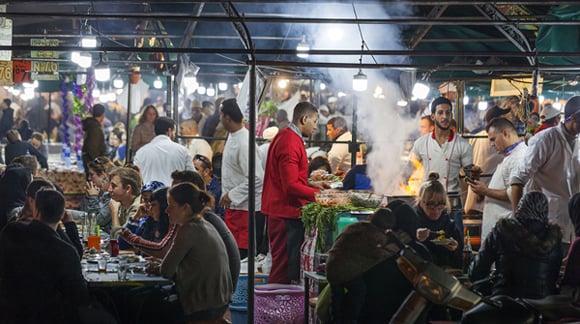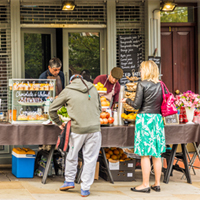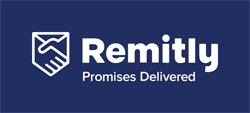15 Expats Talk about Health Insurance and Healthcare in Morocco
Last updated on Mar 10, 2024
Summary: The quality of medical care in Morocco is generally considered to be good, although it is not as advanced as in the United States. Emergency services are available and can be accessed by calling the national emergency number, which is 15. Ambulances are available and can be called for by dialing the same number.

How are healthcare services Morocco?
When we asked expats and global nomads about the quality of medical care in Morocco, they replied:
"Healthcare services in Morocco are provided by both public and private institutions. The public healthcare system is funded by the government and is available to all citizens and foreign residents. The quality of public healthcare varies depending on the region, but generally it is considered to be of a good standard. Foreign residents have access to the public healthcare system, although they may need to pay a fee for certain services. Expats in Morocco can use the public healthcare system, but they may need to pay a fee for certain services. In addition, many expats opt to purchase private health insurance to cover any additional costs," wrote one expat.
"Let's be quite clear: public health services are massively oversubscribed by Moroccans-who all pay for private treatment if they can afford it. Morocco is the only country I have ever visited where there is an almost universal distrust of doctors, on the basis that they will invariably recommend the treatment which earns them the most money. On the other hand, my experience of a private clinic in Marrakech, after a serious accident, was very positive except that absolutely no-one spoke any English (fortunately not a problem for me). I was told in the UK that the scanner which had been used was more 'state of the art' than the one in my large local UK hospital & that the medical treatment I had received was up to European standards. It was, however, very expensive-so first class medical insurance is essential. Pharmacies are serious places, as in France & require properly validated prescriptions for any serious medicines," commented one expat who moved to Morocco.
What are medical services in Morocco like?
When we asked expats and global nomads about the quality of medical care in Morocco, they replied:
"Morocco has a well-developed healthcare system, with both public and private hospitals and clinics providing a range of medical services. The public healthcare system is free for all citizens, while private healthcare is available for those who can afford it. The country has a number of highly-trained doctors and specialists, and the quality of care is generally good. In addition, Morocco has a number of specialized medical centers, such as the National Institute of Oncology, which provide specialized care for cancer patients," commented one expat who moved to Morocco.
Are healthcare and health insurance expensive in Morocco?
"Healthcare and health insurance in Morocco can be expensive, depending on the type of care and coverage needed. Generally, public healthcare is available at a low cost, but the quality of care may not be as high as that of private healthcare. Private healthcare is more expensive, but it is often of a higher quality. Health insurance is also available in Morocco, but it can be costly and may not cover all medical expenses," remarked one expat in Morocco.
 Remitly
RemitlyLearn More
Send money online for what matters most. We make international money transfers easier than ever. Choose how and when you send, with great exchange rates and low fees.
 Remitly
RemitlySend money online for what matters most.
We make international money transfers easier than ever. Choose how and when you send, with great exchange rates and low fees.
Learn More
What are emergency services like in Morocco?
When we asked about emergency services, members in Morocco wrote:
"Emergency services in Morocco are generally reliable and efficient. In the event of an emergency, the best way to call for an ambulance is to dial the national emergency number, which is 15. Ambulances are typically staffed with trained medical personnel and are equipped with the necessary medical supplies to provide basic medical care. Additionally, the Moroccan government has implemented a system of emergency medical centers throughout the country, which are staffed with medical professionals and equipped with the necessary medical supplies to provide more advanced medical care," remarked one expat in Morocco.
Will I need to travel to see a specialist?
"Morocco is home to a wide variety of medical specialists, with some of the best selections located in the cities of Casablanca, Rabat, Marrakech, and Fes. In Casablanca, the Ain Chok Hospital is renowned for its excellent selection of specialists, while Rabat is home to the University Hospital Centre, which offers a wide range of medical services. Marrakech is known for its many private clinics and hospitals, which offer a variety of medical specialists, while Fes is home to the University Hospital of Fes, which is renowned for its selection of specialists in the fields of cardiology, neurology, and oncology," commented one expat who moved to Morocco.
Are common prescription medications available in Morocco?
"Prescription medications are available in Morocco, although the availability of certain medications may vary depending on the region. Generally, most common medications can be found in pharmacies throughout the country. However, some medications may require a prescription from a doctor or may not be available at all. Additionally, some medications may be available in generic form, while others may only be available in brand name form," said one expat.
Do you have anything more to add about local medical facilities in Morocco?
"Medical facilities and medical care in Morocco are generally of a high standard. The country has a well-developed healthcare system, with a wide range of modern hospitals and clinics providing quality care. The government has invested heavily in healthcare infrastructure, and the country has a high number of qualified medical professionals. In addition, the cost of medical care in Morocco is relatively low compared to other countries in the region," wrote an expat living in Morocco.
As a foreigner living in Morocco, will I have access to public healthcare? What is it like?
"Yes, foreigners living in Morocco have access to public healthcare. The quality of care varies depending on the region, but generally the public healthcare system is considered to be of good quality. The public healthcare system is free for all citizens and residents, and there are a number of public hospitals and clinics throughout the country. The public healthcare system is supplemented by a number of private healthcare providers, which offer more specialized services," mentioned one expat in Morocco.
What have your experiences during the pandemic with the local healthcare system been like?
We asked expats in Morocco if they have access to public healthcare in Morocco. And, if they do have access, what is it like. They wrote...
"The pandemic has had a significant impact on the healthcare system in Morocco. The government has implemented a number of measures to protect the population, including the closure of schools, the suspension of public gatherings, and the introduction of a nationwide curfew. Healthcare workers have been working tirelessly to provide care to those affected by the virus, and the government has provided additional resources to support them. Despite these efforts, the healthcare system has been overwhelmed by the number of cases, leading to long wait times for medical care and a shortage of medical supplies. Additionally, the pandemic has highlighted the need for greater investment in the healthcare system, as well as improved access to healthcare services for those living in rural areas," remarked one expat living in Morocco.
What advice do you have for expats having a baby in Morocco?
We asked expat moms who gave birth in Morocco about their experiences and advice they have for other moms to be. They said:
"I would give her the number of my gynecologist and tell her to go along to see him. If you can afford private care here you are in good hands," said one expat in Tangier.
"It is important to research the medical facilities available in the area where you are living in Morocco, as well as the quality of care they provide. Make sure to find a doctor or midwife who speaks your language and is familiar with the local culture. It is also important to be aware of the laws and regulations regarding childbirth in Morocco, such as the need for a birth certificate and the process for registering a child with the Moroccan government. Additionally, it is important to be aware of the cultural norms and expectations surrounding childbirth in Morocco, such as the importance of having a traditional birth attendant present. Finally, it is important to be prepared for the financial costs associated with having a baby in Morocco, such as hospital fees and medical supplies," remarked one in Morocco.
Are healthcare services good in Morocco?
We asked people if they have access to good medical care in Morocco. They wrote:
"I know it's good, here in Rabat. However, in other areas it is not as good. My guess is if you need very high tech medical treatments, you'd probably be better to go to the UK or the EU," said one person in Rabat.
"Healthcare services in Morocco are generally of a good standard, with a wide range of medical facilities available. The country has a public healthcare system, which is free for all citizens, as well as a private healthcare system for those who can afford it. The public system is well-funded and provides access to a range of services, including primary care, specialist care, and hospital care. The private system is more expensive but offers a higher level of care and access to more advanced treatments. In addition, there are a number of international hospitals in Morocco that offer high-quality care to expatriates and tourists," remarked one expat in Morocco.
About the Author
 Joshua Wood, LPC joined Expat Exchange in 2000 and serves as one of its Co-Presidents. He is also one of the Founders of Digital Nomad Exchange. Prior to Expat Exchange, Joshua worked for NBC Cable (MSNBC and CNBC
Primetime). Joshua has a BA from Syracuse and a Master's in Clinical and Counseling Psychology from Fairleigh Dickinson University. Mr. Wood is also a licensed counselor and psychotherapist.
Joshua Wood, LPC joined Expat Exchange in 2000 and serves as one of its Co-Presidents. He is also one of the Founders of Digital Nomad Exchange. Prior to Expat Exchange, Joshua worked for NBC Cable (MSNBC and CNBC
Primetime). Joshua has a BA from Syracuse and a Master's in Clinical and Counseling Psychology from Fairleigh Dickinson University. Mr. Wood is also a licensed counselor and psychotherapist.
Some of Joshua's articles include Pros and Cons of Living in Portugal, 10 Best Places to Live in Ireland and Pros and Cons of Living in Uruguay. Connect with Joshua on LinkedIn.
Additional Information:
- Morocco Guide
- Healthcare & Health Insurance in Morocco
- Members Talk about Healthcare & Health Insurance in Morocco
- Best Places to Live in Morocco
- Guide to Real Estate in Morocco
- Pros & Cons of Living in Morocco
- Cost of Living in Morocco
- 15 Best Places to Live in Morocco
- How to Navigate the Health System in Morocco
- Guide to Residency in Morocco
- Moving to Morocco
- Pros and Cons of Living in Morocco 2025
- 2025 Guide to Moving to Morocco



